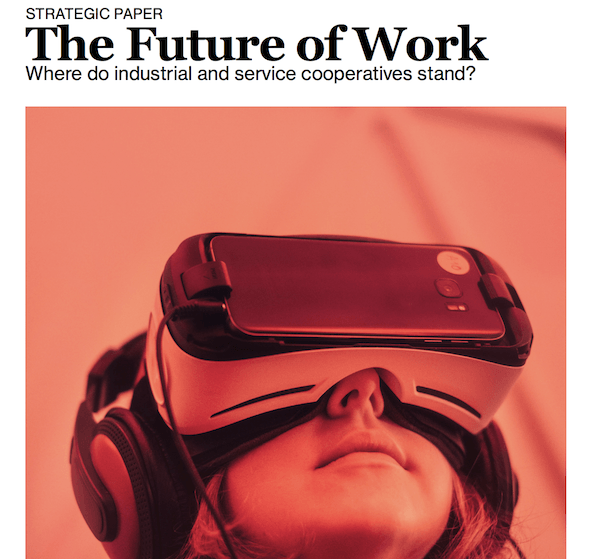
A strategic paper released by CICOPA examines how industrial and service co-operatives are responding to the transformation of work.
The report looks at the challenges posed by the future of work such as technological changes and the knowledge economy; demographic, societal and environmental trends; globalisation and de-industrialisation; and the impact of the reorganisation of work on working conditions, inequality and social protection.
The paper highlights that co-operative employment tends to be more sustainable in time, suffers less income inequality, is characterised by a better distribution between rural and urban areas, and enjoys a higher level of satisfaction and self-identity than the average. Co-operatives are also a large laboratory experimenting innovative and sustainable forms of work and work relations within the enterprise with continuous creativity and innovation.
CICOPA’s report also provides policy recommendations structured around the ILO’s concept of Decent Work. It proposes a series of measures, such as implementing co-operative promotion policies as enshrined in the ILO Promotion of Cooperatives Recommendation, issuing legislation that reflects the ICA’s statement on the co-operative identity and helping co-operatives to develop social policy outcomes. Other suggestions include promoting policies for the participation of women in co-operatives, encouraging the role of co-operatives in transforming informal economy activities into formal ones and encouraging co-operative organisations to establish an active working relationship with employers’ and workers’ organisations.
Read the full report on CICOPA’s website.




